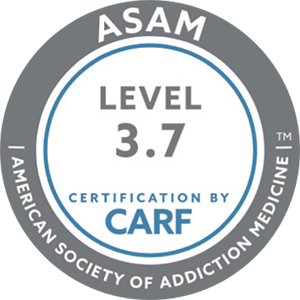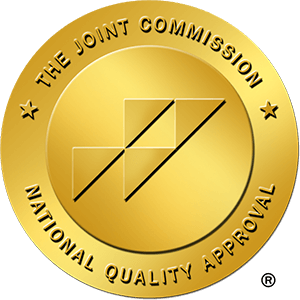When “No” Doesn’t Mean Never: The Other Side of Interventions
It’s one of the hardest moments you can face: you know she’s struggling. You’ve seen the missed calls, the weight loss, the stories that don’t add up. You’ve done the research, maybe even rehearsed the words, only to be met with shutdowns, pushback, or silence. When a woman refuses addiction treatment, it doesn’t mean the conversation is over. It means the approach needs to change.
Not every intervention leads to a packed suitcase and a tearful goodbye at a rehab door. But that doesn’t make it a failure. Sometimes it just takes a little more time, a shift in how the truth is framed, or even who delivers it. The right steps can help rebuild trust, offer clarity, and plant seeds that grow into lasting recovery.
Next Steps
If you’re struggling with addiction, you don’t have to face it alone. At Casa Capri, we offer expert, women-centered care in a supportive and nurturing space—designed by women, for women. Our team is here to help you heal with purpose and connection.
Call our admissions team for a free, confidential chat—we’ll even check your insurance and estimate any costs upfront.
Focus on Connection Before Correction
If the conversation starts with blame or confrontation, it almost always ends in retreat. Women—especially those carrying deep shame about their substance use—often brace for judgment before a single word is said. This isn’t a weakness. It’s self-preservation. To get past that wall, connection has to come first.
Start with what’s true but not loaded: “You seem so tired lately.” “I miss the way we used to talk.” These aren’t accusations. They’re openings. And openings matter more than ultimatums. When someone’s stuck in addiction, the most valuable thing they can feel is that someone still sees them underneath it. Not just their choices, but their exhaustion. Their fear. Their worth.
Once that connection is steady, gentle honesty can come into play. But it works best when the goal is understanding, not control. The point isn’t to talk her into something in one conversation. The point is to become someone she’s still willing to hear the next time she’s ready.
Call in Someone She Might Actually Listen To
There’s often a moment when family and friends have tried everything. They’ve offered help, set boundaries, read books, sat through recovery podcasts, and still nothing changes. When that happens, it’s time to consider someone who brings no baggage into the dynamic—just skill, compassion, and a different level of authority.
A professional interventionist knows how to navigate the storm without escalating it. They’re trained to understand addiction psychology, recognize manipulation cycles, and guide loved ones through the tightrope of firm compassion. But even more than that, they know how to reframe the message. What sounds like nagging from a sister or pleading from a mom can come across as genuine concern from a neutral party who’s just there to help.
Some interventionists even specialize in working with women, understanding the layered trauma, identity struggles, and caretaking roles that often play into addiction. When nothing else is getting through, this step can be the missing piece. It’s not admitting defeat—it’s changing the rules of engagement.

Make It About Her Pain, Not Her Behavior
It’s easy to focus on what addiction is doing to others. The lies. The chaos. The missed birthdays. But from the inside, the pain of addiction is almost always bigger than the damage it causes on the outside. People use substances to survive feelings they don’t know how to face sober. And for many women, those feelings come from deep, old wounds that haven’t been touched in years.
So instead of pointing out the consequences, try focusing on what’s beneath them. Is she drinking every night because her anxiety spikes the second the house gets quiet? Is she sleeping until noon because her nights are filled with panic or nightmares? These aren’t excuses. They’re entry points. Ask real questions. Notice real suffering. Let the conversation turn toward what hurts, not just what’s broken.
Because underneath a lot of addiction is unresolved trauma, and pretending it’s not there only feeds the cycle. Bringing it to light—even just a little—can shift everything. It allows space for the possibility that the substance isn’t the only problem. Maybe there’s more to heal than just stopping the habit.
Don’t Be Afraid to Pull Back—Temporarily
It feels unnatural to step away when someone is falling apart. But sometimes, pulling back in the right way can do more than constant pushing ever could. When support turns into enabling—or when love gets lost in the swirl of caretaking—space can be the most honest response left.
That doesn’t mean abandoning someone. It means choosing not to participate in the destruction. It means saying, “I love you, and I’m here when you’re ready—but I can’t keep pretending this is okay.” These moments can feel cold, even cruel, but they often become the turning point. Not because the person suddenly wants to change, but because the safety net quietly disappears.
Without someone constantly catching the fall, consequences land differently. Reality starts to show up more clearly. And sometimes, that’s what it takes for the internal denial to crack. Distance can speak a language that arguments can’t.

Reinforce the Possibility of Change, Even When It Feels Hopeless
When someone refuses help again and again, it’s easy to start believing they’ll never get better. But that belief can creep into how people talk to her, how they look at her, and even how they love her. It’s subtle, but powerful. And it makes it even harder for the person to picture a version of herself beyond the addiction.
That’s why it matters so much to keep the door open—to keep saying, in your own way, “You’re not stuck. You can change. You’re still worth fighting for.” Not with toxic positivity or empty mantras, but with reminders of who she used to be, and who she still could be. Even if she rolls her eyes. Even if she acts like she doesn’t care. That seed sticks around longer than it looks like.
Hope doesn’t always come in dramatic moments. Sometimes it’s found in a conversation that seems like it went nowhere, or a hug that wasn’t refused. It’s built in quiet, boring, everyday acts of presence. And it can be the thing that eventually turns the tide.
Not every intervention ends with a miracle. But every effort to reach someone stuck in addiction still matters. Women don’t wake up one day and decide to get better because someone had the perfect words. They get better when enough love, truth, and time stack up to make them believe they can. If she isn’t ready yet, it doesn’t mean she won’t ever be. It just means your voice, your actions, and your choices still matter more than it might seem.
Next Steps
If you’re struggling with addiction, you don’t have to face it alone. At Casa Capri, we offer expert, women-centered care in a supportive and nurturing space—designed by women, for women. Our team is here to help you heal with purpose and connection.
Call our admissions team for a free, confidential chat—we’ll even check your insurance and estimate any costs upfront.













